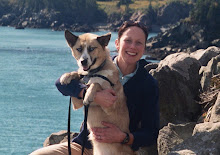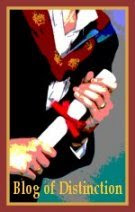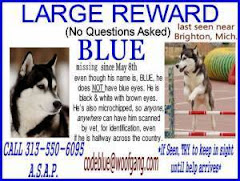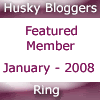
Like most dogs, Ari maintains an enviable relationship with the natural world. She is closer to the ground, to the uncivilized world, to the genetic makeup of the critters leaving tracks in my snowy yard. As such, she can be my ambassador to this world and reveal more than any printed page. I will benefit from approaching the natural world as she does. But how to go about it?
I begin with location. Our house—a humble log cabin—is located at an appealing crossroads where nature meets culture. It is abutted by a long dirt road called Stagecoach which, in spite of its humble appearance, is far from an average gravel thoroughfare. A hundred years ago, Stagecoach Road was one of the major routes in the state of Maine. It once carried Henry David Thoreau up north, where he would gather the research needed for his book The Maine Woods. John James Audubon was said to wander this way with his canine companion—a giant Newfoundland—by his side. When they and countless others passed this way, they were traveling through a real hub. A hundred years ago, our town served as an important hinterland for the mid-coast ports, and it was filled with dozens farms, creameries, schools and taverns. In time, industries changed, taking the dairy boom further south. Then the Great Depression struck, taking many residents further west. Houses were abandoned and eventually crumbled in on themselves, leaving only errant cellar holes and cultivated fields that were slowly reclaimed by the forest.
In response to the depression and its diaspora, the town leaders organized their own version of the Civilian Conservation Corps and planted thousands of pine trees where the dairy farms once stood. Lumber, swore the town elders, was much more reliable than money in the bank. The plan worked. Pine telephone and electrical poles, once part of our forest, now stretch from here to Turkey. And the hundreds of acres that were once the town center continue to persist as thick coniferous groves. As for the once-famous dirt road, it’s now more recreational than functional, providing routes for snowmobiles and hikers instead of cream trucks and transcendentalists. In short, nature has returned, reclaiming much of the land and leaving only hidden clues about what had come before.
This area will serve as the official classroom for our project. There, Ari will eventually be able to run off leash if we choose, and we will have plenty of uninterrupted space for play and exploration and even contemplation. But the real success of this project depends upon my willingness to hand over control. I have resolved that this tiny, toddler of a puppy will make most major decisions for us. She will dictate the pace of our walks, the amount of time spent outside, the daily topics with which we might concern ourselves. For my part, I will not feel pressed for time; I will not impart my sense of getting and spending. William Wordsworth is right: the world is too much with us.
But Wordsworth didn't say a word about what happens to the best laid plans. Maybe he should of. On this bright Sunday morning the puppy dances crazily around my feet, stopping only to chew on my fingers when I try to lace up my boots. She is still small—about 15 pounds—and her proportions are infant round. One of her ears stands up wolfishly; the other flops over like the RCA dog’s. None of this, however, makes her any less of an opponent when it comes to getting things done. Ari’s teeth are still the temporary ones allotted to baby animals—jagged little numbers that pierce the skin with little effort. They hurt. A lot. As she bites at my hands, I pick her up and set her on the floor near the kitchen table, wrongly thinking that she will stay seated there. She beats me back to where my other boot rests, eager to continue complicating my attempts at getting dressed and tumbling over our other shoes in the process.
Greg’s voice wafts downstairs, asking playfully if everything is okay. I assure him that it is. My voice sounds strained as I do.
In the space of twelve minutes, I’ve managed to don exactly one hiking boot. One of its long laces rests limply on the slate floor of our entryway. The other extends tautly, a fishing line that has caught a robust dog fish. She backs slowly, pulling tight the slack, then gives a few impatient jerks when she cannot extend the lace any farther. Each time I reach down to free it from her eel-like jaw, she shakes the lace harder, dropping it only to notarize my palm with tiny fang marks. As soon as I pull my wounded hand away, she’s back to the lace. As soon as I try to put on the other boot, she launches a similar assault on it.
Half an hour later, we park at the terminus of Stagecoach Road. I open the car door and lower the wriggling dog onto the snow. The white stuff is thicker here, and Ari sinks down to her elbows. She looks up, taking in the scenery and offering a few trial sniffs of the air. Fascinating. These are not the smells of our house, nor are they those of our yard. I watch her closely to see how she responds to this realization, but learn little from her expression. She seems tentatively interested—no more, no less.
We are now 78 minutes into our hour-long walk. Not counting the race around the kitchen table, we have taken three steps. I make a mental list of what chores I can ignore to accommodate the delay. Will my students believe me if I tell them I didn’t grade their papers because I couldn’t get my boots laced in time? Could I lose my job because I couldn’t leash my dog? No time to consider such things—it’ll only delay us further. We set off down the well-worn path into the forest, following the route already established by snowmobiles and cross-country skiers. Ari surges ahead, extending her telescoping leash to its full 15 feet and kicking up loose snow. As she does, she pulls harder, taking short raspy breaths and struggling against the pressure of her collar. I stumble behind, feeling my boots slip on the icy tracks. Keeping up with an anxious puppy while taking an inventory of the surroundings is harder than it seems. I feel like I’m losing track of both.
I try to slow our pace, but the pup pulls on, as if channeling all of her mushing forebears into this one glorious moment of movement and ice and camaraderie. She certainly seems to be heading somewhere, although I can’t for the life of me determine where. Furthermore, I can’t tell if this excitement has any shred of pleasure in it, or if she’s just convinced we’re about to be eaten by predators.
I tell her that we are supposed to be playing naturalists, a role she assumes with aplomb in our own yard. She pretends not to hear. I say—louder this time—that she needs to start sniffing at plants and introducing me to the animals who are waking from their winter hibernation. She looks as if she would laugh at my parochialism. Instead, she gives me a look that seems to say, Come on—isn’t this what you wanted? Aren’t we—at your insistence, I might add—a whole two miles from home and around all of these new and unbelievable things!?!
I can’t argue with such logic. I wanted a sense of wonder, and here I have it. I try to be in the moment, to experience the simple gladness of a romp. It doesn’t work; I’m still thinking too much. I try distracting myself, counting trees and mentally recording a few hackneyed adjectives about their thick green foliage—the only color in an otherwise white and gray world.
This seems to help. I expand my vision, scanning the trees for birds, looking up into the web of branches and needles. Ari, meanwhile, continues to cast her gaze down on the ground. In a single moment I understand why.
This seems to help. I expand my vision, scanning the trees for birds, looking up into the web of branches and needles. Ari, meanwhile, continues to cast her gaze down on the ground. In a single moment I understand why.
Without my knowing it, we have begun to descend a small hill. This causes us to accelerate into an involuntary and uncontrolled shuffle. And, because I am still foolishly looking for fauna—a sparrow, a blue jay, a pterodactyl, anything at this point—I do not see the patch of ice awaiting my right boot. As soon as it makes contact, both feet fly out from under me, and for one brief, shining second, I am airborne. It’s too good to last, and soon doesn’t. The impact of fully-grown human on ice is surprisingly grand, and I hit the ground with a long, dull thud. As I do, the leash leaps from my hand, its thick plastic retractor hitting the ground in a loud aftershock.
Ari hears both and whirls around, panicked. She takes one look at the sprawling human and races off, bolting her way back to the car and trawling the clunky leash case behind her. I catch one last glimpse of her—a bear cub of a dog racing with all of her might to get away from the oafish human and the now-frightening environment.
Ari hears both and whirls around, panicked. She takes one look at the sprawling human and races off, bolting her way back to the car and trawling the clunky leash case behind her. I catch one last glimpse of her—a bear cub of a dog racing with all of her might to get away from the oafish human and the now-frightening environment.
As her form becomes smaller and smaller on the wooded horizon, I fetch my hat, shake out the ice crystals, and rub my hamstring. I stand, trying to get my bearings and to locate my dog. The forest is nearly silent, save for the rat-a-tat-a-tat of plastic bouncing off of frozen snow as Ari continues to flee. I follow the sound, making my way back the ½ mile to the car. There, a very timid puppy cowers, tail between her legs, hoping against hope that this big metal box with wheels will take her not back into the woods but, instead, back home.
She avoids my gaze as I get closer. Her feelings are hurt, and I get the distinct sense she no longer trusts me. With some crooning sweet-nothings, I manage to lure her back inside the car. I try not to wince as I sit down on my bruised behind. Meanwhile, Ari works to put a safe distance between us. The ride home is eventful only because her scorn appears to outweigh her car-sickness, and she doesn’t seem to notice the increased speed of our return trip. As we pull into our driveway back home, I realize that I’ve left my field guides out in the woods, along with my notebook and just about all of my pride. At this rate, we could have a long twelve months ahead.

















